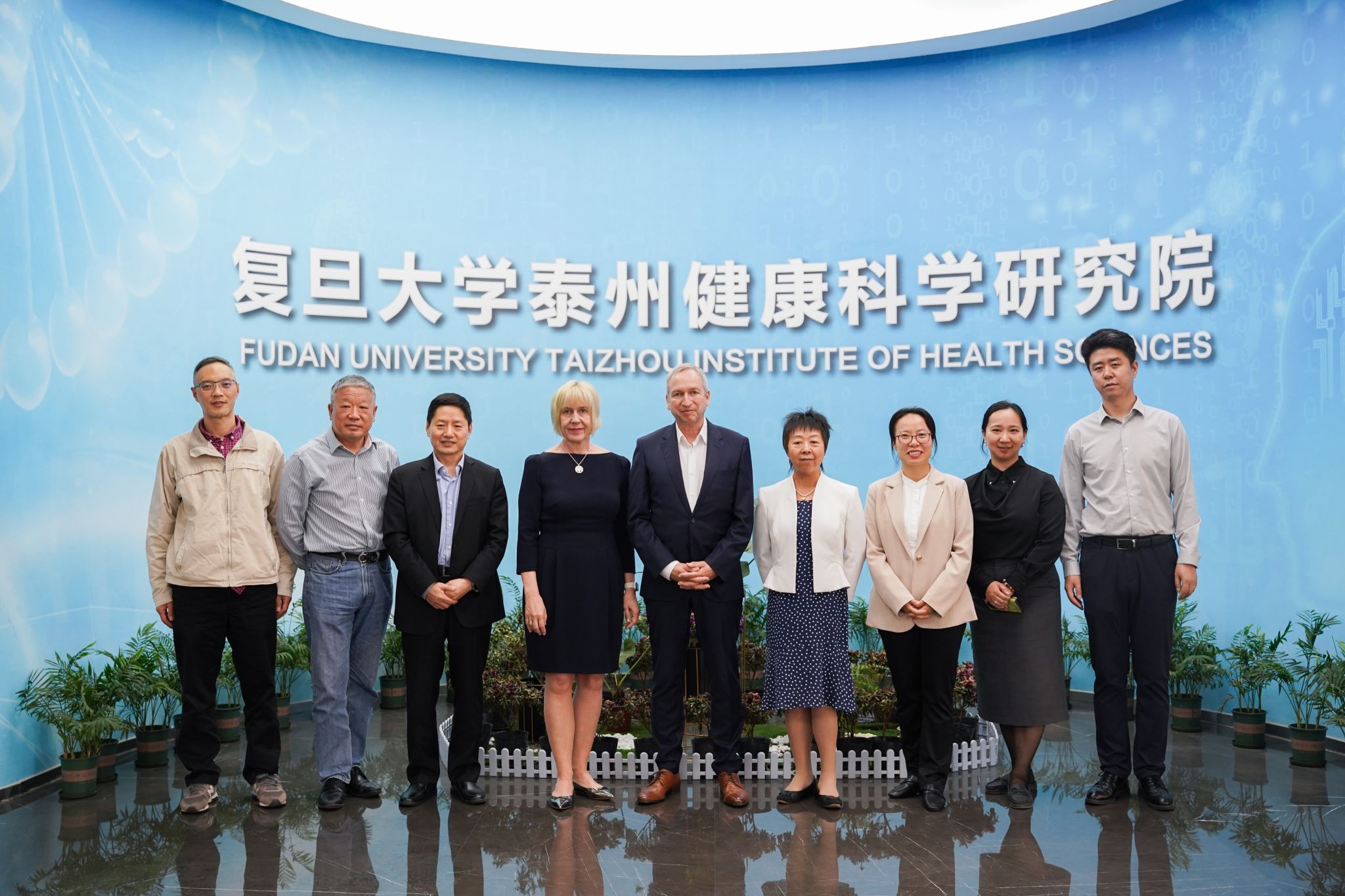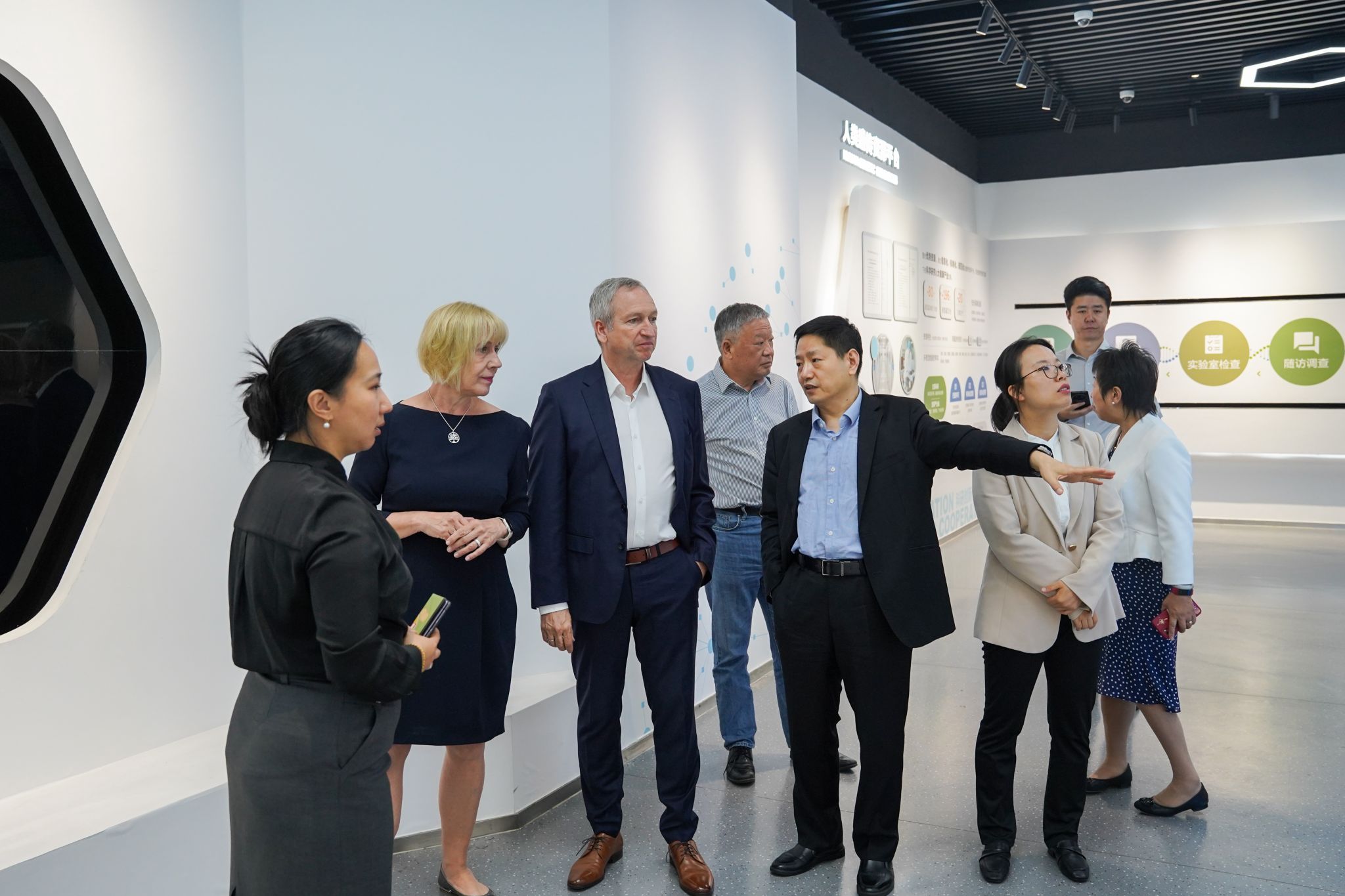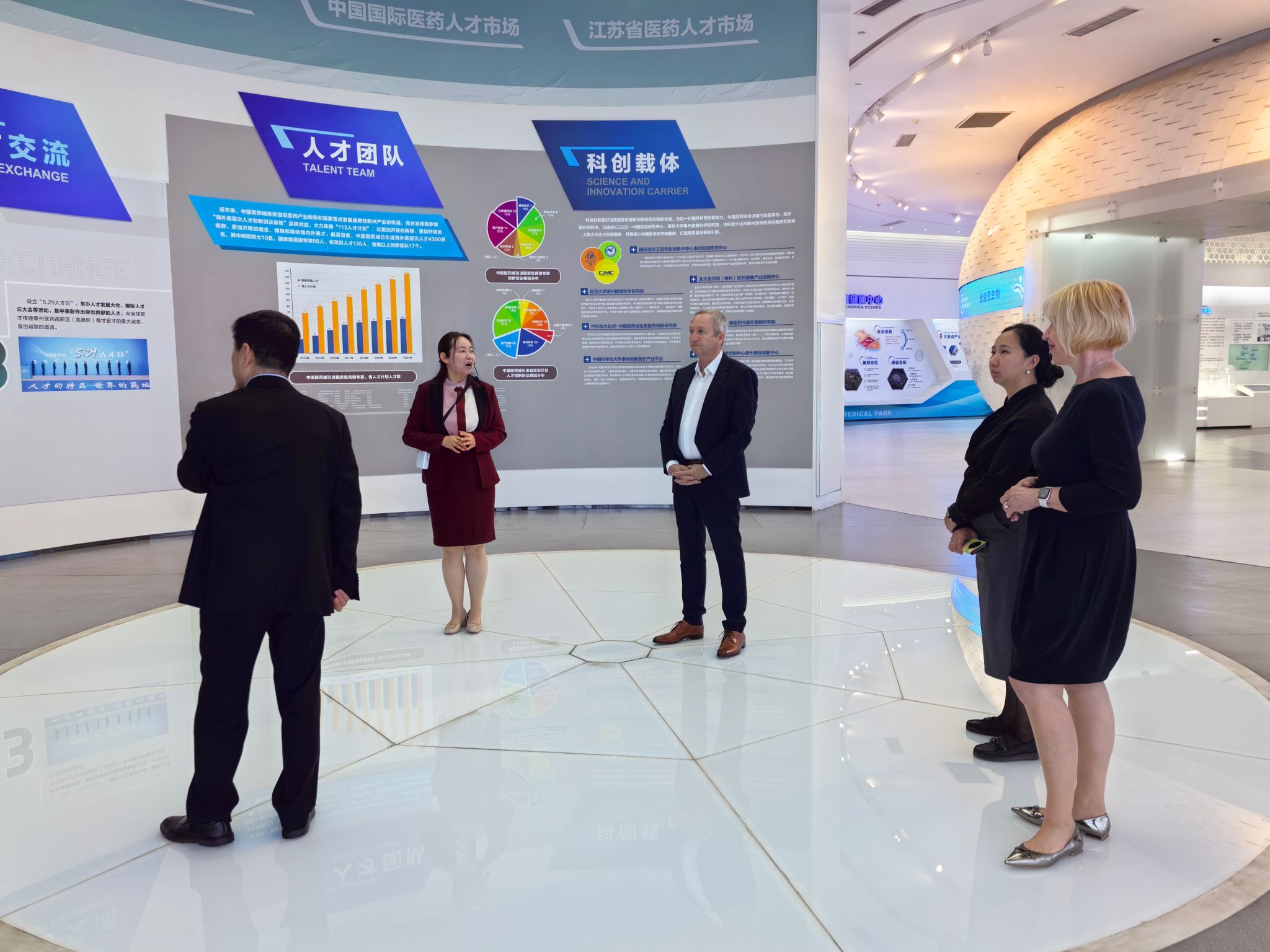On May 8, 2025, Professor Lei Liu, Executive Vice Dean of Intelligent Medicine Institute at Fudan University, led a delegation including Professor Roland Eils—Professor of Intelligent Medicine Institute at Fudan University, Member of the German National Academy of Sciences, and Founding Director, Digital Health Center, Berlin Institute of Health at Charité-University Medicine Berlin; Professor Irina Lehmann—Professor of Intelligent Medicine Institute at Fudan University and Head of the Department of Molecular Epidemiology, Charité-University Medicine Berlin, as well as Dr. Liyan Zeng, Director of the Administrative Office, Intelligent Medicine Institute, Fudan University. The group visited the Fudan University Taizhou Institute of Health Sciences for academic exchange. The visiting delegation was warmly received by Professor Tiejun Zhang (Vice Dean), Professor Ziyu Yuan (Vice Dean), Professor Chen Suo (Assistant to the Dean), and Distinguished Researchers Professor Huiru Tang and Professor Yulan Wang from the Fudan University Taizhou Institute of Health Sciences.

The visit began with a tour of the Fudan University Taizhou Institute of Health Sciences s themed exhibition hall on cohort studies, where the delegation gained detailed insights into the Institute’s achievements in regional population cohort development, health data collection and management, and research platform construction. Professor Chen Suo gave a comprehensive introduction to the Institute’s progress in scientific platform development, cutting-edge scientific research, industrial translation of research results, and support for local public health services, laying a solid foundation for future collaboration between both parties.

At the academic exchange meeting, Vice Dean Professor Tiejun Zhang and Executive Vice Dean Professor Liu Lei delivered welcome addresses, expressing that both institutes share broad prospects for collaboration in areas such as intelligent medicine, precision medicine, and multimodal data integration. They expressed hopes that the exchange would deepen mutual understanding and promote project cooperation. Professor Roland Eils delivered a keynote speech titled "Unlocking Medical Data to Transform Diagnosis, Medication and Prevention," in which he elaborated on the profound transformation of medical paradigms driven by data, emphasizing how unlocking and efficiently utilizing medical data can significantly enhance the precision and efficiency of diagnosis, treatment, and disease prevention. He also shared pioneering research projects and application outcomes in the field of digital health based on his practical experience. Following the presentation, the two sides engaged in in-depth discussions on topics such as the application of large language models (LLMs) in medical research and clinical decision-making, and the integrative analysis of multimodal health data for personalized health management. They reached preliminary agreements on collaborative scientific research and joint applications for research funding.

In addition, the delegation visited the Taizhou Pharmaceutical Expo Museum and the iFlytek Medical AI Research Institute in Taizhou, gaining deeper understanding of Taizhou’s advancements in biopharmaceutical industry development and AI-driven medical innovation. These visits provided valuable inspiration and insight for the future construction of an intelligent medical ecosystem.

This exchange activity not only deepened collaboration in the field of intelligent medicine but also injected new momentum into building an integrated innovation chain that connects scientific research, translational application, and real-world implementation, thus contributing to the high-quality development of medical science and technology.